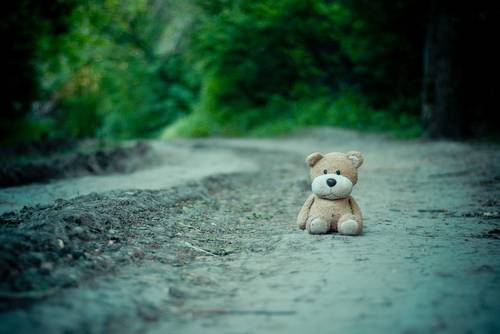The meaning of sAcrifice
03/23/2020 02:36:09 PM
Rabbi Boris Dolin
| Author | |
| Date Added | |
| Automatically create summary | |
| Summary |

Life gives us many changes in perspective, but I never thought I would see one like this.
I doubt any of us thought that a pandemic of this scale was even possible, even if the reality of our ever changing world led many scientists to say that it was just waiting to happen. Few of us thought that we would ever be forced to stay in our homes, forbidden from touching our loved ones. Few of us thought that we would walk into supermarkets with empty shelves and guards at the entrances as if we were at war. And few of us thought that we would have to wake up each morning, unsure of whether things were going to get even worse than the day before. We are experiencing a worldwide shutdown, and a crisis that will without a doubt have a physical, economic and emotional toll for years to come.
But thankfully, so many of us have tried to make the best of our situation. With the help of technology, a heavy dose of creativity and even a bit of humor mixed in, we have managed to fill each day with so much more than worry and fear. Families and friends are sharing conversations via Facetime or Zoom, and people are staying connected with each other through one of the many new technologies available to us. Parents have turned their living rooms into schools, and tried to make sure that these many weeks stuck at home involve something beyond Netflix and computer games (and let me tell you, it is harder than it looks). Free online concerts and classes almost overwhelm us with endless opportunities to be kept busy. In the midst of such a truly difficult week, we have found ways to connect and thankfully have not given up on each other. For this we can be thankful.
But some people seem to be happy going on as if nothing has changed at all. They gather together in large crowds, have big gatherings in their homes, and to the embarrassment of all of us in the Jewish community, meet for minyanim or simchas in synagogues and shtibelachs, believing that faith in God or more Torah study will keep them safe. People seem to think that this powerful virus is simply not strong enough to touch them.
As Trudeau said in his press conference yesterday, "We've all seen the pictures online of people who seem to think they're invincible. Well, you're not," he said.
Yet, I think it is more simple than that. I don’t think that most people believe that they are invincible or that they can’t be made sick by this virus. Not to say that this week has not introduced us all to many of the impressively ignorant among us who are willing to say with a smile that they simply don’t care (Don’t get me started on the college students on spring break in Florida…). But I think what we are seeing is also the product of a world that has become too separated, where for many, their personal needs are all that matters, and some will fight for this independence no matter what they see taking place around them.
We are being told that we need to follow the rules and deal with the inconvenience that this might cause, not just for ourselves but even more for the health and wellbeing of others. But this level of sacrifice, the idea of giving up convenience for the sake of others, is simply not part of many people’s reality, and for some it is simply impossible to even fathom.
A helpful remedy for this reality is hinted at in the week's Torah portion. As we begin the book of Leviticus we are introduced to the mysterious world of korbanot, the “sacrifices” given in the mishkan. The specifics of how this is done, from the method of slaughter, to the gory details of how the offerings are given, and nothing is left out. But the deeper meaning of what is being described is actually much more simple. Korban, קרב the three letters which make up the root of the word in Hebrew, actually means something quite different than the English “sacrifice”. Korban, means to “draw near”, to "make close". And only by putting the two concepts together, sacrifice and closeness, do we begin to understand what is really happening in our current crisis.
When we take something that is important to us, whether it is the “choicest of our flock” or the desire to live our daily lives as normally as possible, we have to give up a little part of ourselves. We have to let go of something that we worked hard to help grow, and in a way even lose a bit of our stability and ourselves in the process. This is a lot to ask of billions of people, and while it is difficult for us all, for some, they resist as if there was no other choice.
Living through this pandemic, and making sure that we care about the health and safety of all of us demands one of the greatest and most sustained societal sacrifices that many of us have ever taken on. If we take this sacrifice seriously, as we all need to, it will be a sacrifice that really does hurt. We have to give up on what we are used to, try our best to settle into separation and change, and make our way through the difficult emotions that are guaranteed to follow.
It is difficult to take away from what is normal. We don’t want to lose all that is familiar to us, and what gives us strength. But if we channel the energy of this experience, the very real challenges and pain, along with the moments of blessing and joy, we also do something that is even more powerful.
Like the act of offering sacrifices in the mishkan, we become karov, closer.
We grow closer to each other, as we begin to understand in a way we never could before, the importance of connection and community. We grow closer to an understanding of how our actions and behaviors affect the environment and life around us, and we hopefully make real and lasting changes in how we live our daily lives. Even more, if we are truly able to gain strength from this profound change in perspective in which we now exist, we can even grow closer to understand the nature of our true selves and walk away from it all with a greater sense of purpose.
Let us maintain the strength, hold on to the hope, and keep on connecting with each other in any way we can. Because I do believe that when that blessed day comes, when we can leave our homes and walk freely in this world again, we can all leave better people then when it all started.
Congregation Dorshei Emet - 18 Cleve Rd., Hampstead, QC, H3X 1A6 - 514-486-9400
Home - About Us - Contact - Disclaimer
Privacy Settings | Privacy Policy | Member Terms
©2025 All rights reserved. Find out more about ShulCloud



